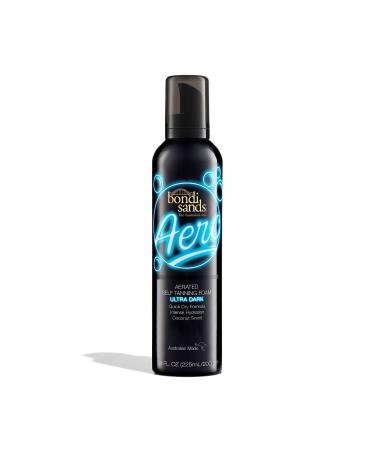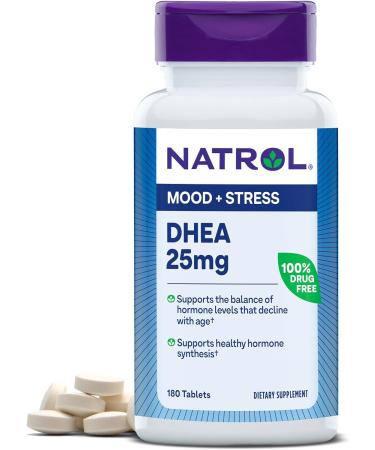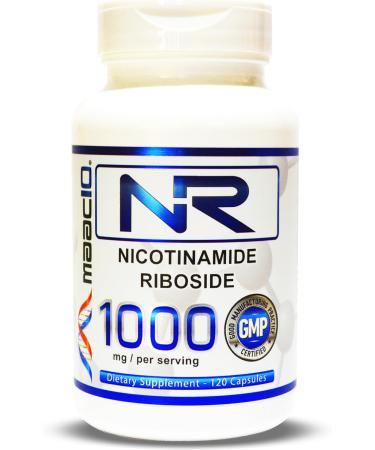Alpha-lipoic acid is a sulfur-containing fatty acid that performs vitamin-like roles in the body. Also known as lipoic acid (LA) or thioctic acid, it functions as a co-enzyme in the metabolism of carbohydrates, and is in this way similar to B-complex vitamins. LA is required for synthesis of acetyl CoA, a key metabolite in the cellular process that turns glucose (blood sugar) into energy. Because the body produces LA on its own, it is not classified as a true vitamin. As with other so-called "non-essential" nutrients, however, internal LA production may not always be optimal.
Alpha-lipoic acid functions as both a water-soluble and fat-soluble antioxidant. Free radicals are normal by-products of metabolism that, while necessary at normal levels, may damage tissues over time if not properly kept in check by antioxidants. Lipoic acid's ability to neutralize free radicals in both watery and fatty environments makes it a highly versatile antioxidant. In the body, alpha-lipoic acid can be converted (reduced) to DHLA, or dihydrolipoic acid, a potent mitochondrial antioxidant. It is not necessary to take DHLA as a supplement, as the body may readily convert LA to DHLA.
What is BioEnhanced Na-RLA Stabilized R-Lipoic Acid- Alpha-lipoic acid comes in two forms, designated as "R-lipoic acid" and "S-lipoic acid." R- and S- lipoic acid are enantiomer isomers––molecules that appear as mirror images of each other. R-lipoic acid is naturally synthesized by humans, animals, and plants. S-lipoic acid is formed during chemical synthesis of alpha-lipoic acid, producing a "racemic" mixture of the two enantiomers that is often used in clinical studies on alpha-lipoic acid. Pharmacokinetic studies have shown that R-lipoic acid is more bioavailable than the S- form.1 For example, following single oral doses of 50 to 600 mg of racemic LA, maximum serum levels of the R- form were 40 to 50% higher than the S- lipoic form.2
Best Stabilized R-Lipoic Acid contains BioEnhanced Na-RLA, the sodium salt of R-Lipoic acid (RLA). Pure RLA is a very unstable molecule that has a tendency to polymerize with exposure to heat, light, and moisture. This presents problems for those wishing to supplement with RLA, since any of these conditions can lead to deactivation of the beneficial activity of alpha-lipoic acid. Unlike pure RLA, BioEnhanced Na-RLA is a stabilized form of RLA that won't degrade at high temperatures. By taking the sodium salt of RLA, its solubility is increased and it has an improved dissolution in the body. It is more bioavailable than regular RLA and has no solvent residues.3
Note regarding sodium: The RLA in this product is stabilized with Na (sodium). However, one serving of this product contains less than 1% of the Daily Value for sodium, an insignificant contribution to dietary sources. Research suggests that sodium may impact blood pressure in some individuals only when it is consumed as sodium chloride (NaCl, table salt) and not in other forms. The sodium in this product is unlikely to affect blood pressure levels.
D-Biotin - Best Stabilized R-Lipoic Acid includes optically pure D-Biotin, the natural form of biotin. D-Biotin is a water-soluble vitamin and member of the vitamin B-complex that aids in the utilization of other B-complex vitamins. Integral to many of the activities of enzymes in the human body, D-biotin is necessary for the breakdown and conversion of fatty acids and carbohydrates into energy, allowing for the production of fats and excretion of protein breakdown products. Long-term administration of lipoic acid can lower the activities of the biotin-dependent enzymes pyruvate carboxylase and beta-methylcrotonyl-CoA carboxylase by competing with biotin.4 Supplementing with LA may thus increase the body's requirements for this vitamin.
Supports the body's defense against free radicals*
Recycles antioxidant nutrients such as Vitamin C and Vitamin E*
An ideal antioxidant would have the ability to quench a wide variety of free radicals, to support the functioning of other antioxidants, to function in watery and fatty environments, and to be present in tissues, cells, and extracellular spaces. Having exceeded these criteria, Lipoic Acid was termed the "universal antioxidant."5
As a team, LA and DHLA come close to the ideal, for the following reasons:6-8
1) LA is easily absorbed when consumed orally.
2) LA is readily converted to DHLA in various tissues.
3) As a pair, LA and DHLA neutralize superoxide, hydroxyl, peroxyl, and hypochlorus radicals.
4) LA and DHLA form stable complexes with metal ions such as iron, manganese, copper and zinc ions.
5) LA and DHLA scavenge free radicals in both fatty and watery environments.
6) DHLA recycles other important antioxidants.
Within the cell, antioxidants work as a team to keep free radicals from damaging cell structures. In order to neutralize a free radical, an antioxidant such as vitamin C must give up an electron, which means it becomes oxidized. Before it can function as an antioxidant once again, it must be regenerated back to its "reduced" form by gaining an electron to replace the donated electron. For this, it needs the help of other
ntioxidants. Vitamin C, vitamin E, and glutathione are key antioxidants that can be generated by cycling between their oxidized and reduced forms. This is necessary to maintain the balance between oxidation and its reverse––the neutralization of free radicals by antioxidants.
Helps maintain healthy glucose metabolism* - Alpha-lipoic acid is a key factor in the cellular process that metabolizes glucose for energy production. Researchers have noted that for a non-hormonal compound, LA is remarkable for its effect on carbohydrate metabolism—especially the R-lipoic form of alpha-lipoic acid. For example, in vitro studies have shown the ability of RLA to promote rapid uptake of glucose in muscle and fat cells.12, 13

















